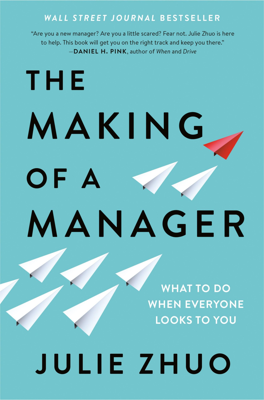Managing Yourself
Julie Zhuo discusses her struggle with balancing work and personal life after having her first baby and how getting an executive coach, Stacy McCarthy, helped her manage this transition by focusing on self-awareness and self-improvement.
Discovering Self-Awareness
- Initial Struggles: Julie felt overwhelmed juggling home and work life post maternity leave.
- Introduction to Coaching: Stacy McCarthy focused on understanding Julie's personal and professional journey.
- Feedback Report: A detailed report from Stacy helped Julie recognize both her strengths and weaknesses, providing clarity on her internal fears and areas needing attention.
Everyone Feels Like an Imposter Sometimes
- Imposter Syndrome: Julie shares her experiences with imposter syndrome, illustrating how common it is among managers.
- Managerial Challenges: Feeling underqualified often stems from being looked to for answers and frequently facing new tasks without prior experience.
Getting to Brutal Honesty with Yourself
Knowing Strengths and Weaknesses: Recognizing personal strengths and areas for improvement is crucial.
- Strengths Example: Dreaming big, fast learning, optimism.
- Weaknesses Example: Overcomplexifying, self-doubt.
Calibration Through Feedback: Seeking unvarnished feedback from peers and managers to align self-perception with reality.
Understanding Yourself at Your Best and Worst
- Ideal Environments: Identifying conditions that foster peak performance.
- Examples: Adequate sleep, early productivity, trust with colleagues.
- Triggers and Negative Reactions: Recognizing and managing personal triggers to maintain effectiveness.
Finding Your Confidence When You're in the Pit
- Acceptance: Allowing oneself to feel bad without additional guilt.
- Rationalizing Thoughts: Challenge worst-case scenario thoughts to avoid irrational conclusions.
- Visualization: Using mental imagery to overcome fears and boost confidence.
- Seeking Support: Reaching out to trusted individuals for empathy and guidance.
- Celebrating Wins: Keeping a journal of small achievements to shift focus from failures.
- Self-Care: Establishing boundaries to maintain work-life balance and physical wellbeing.
Learning to Be Twice as Good
- Ongoing Improvement: Practice and continual learning lead to growth.
- Feedback: Regularly seek both task-specific and behavioral feedback.
- Manager as a Coach: Treat your manager as a supportive coach rather than a judge.
- Peer Mentorship: Learning from the strengths of colleagues and peers.
- Reflection and Goal Setting: Periodic review of accomplishments and setting new goals for continued improvement.
- Formal Training: Taking advantage of formal training sessions or professional coaching for development.
Conclusion
Becoming a great manager involves a deep understanding of oneself, recognizing strengths and weaknesses, and continuously seeking improvement through reflection, feedback, and learning. Managerial growth is an ongoing journey that requires adaptability and persistence.
